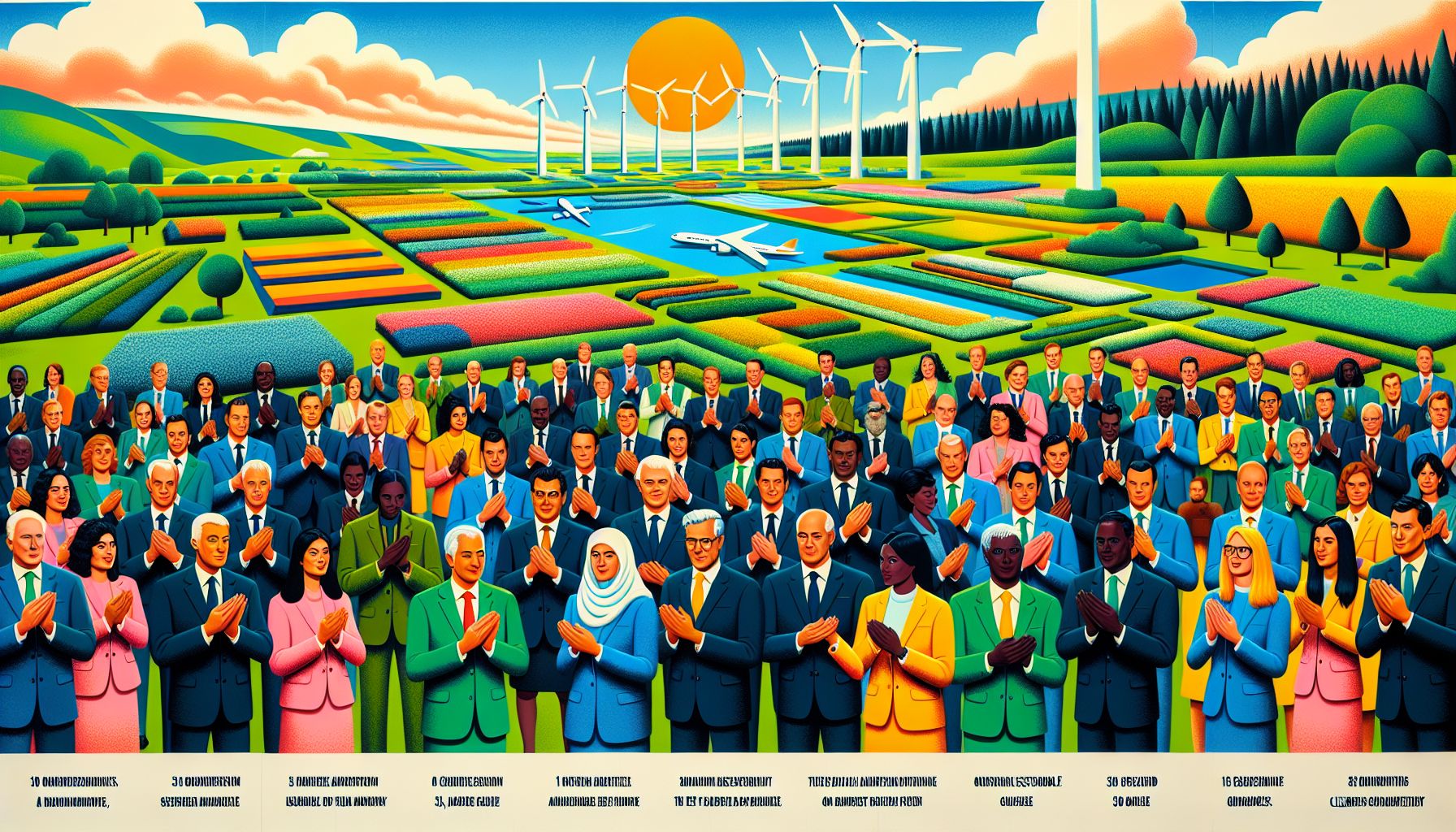Dutch Aviation Sector Unites for Sustainable Future

Amsterdam, Monday, 29 July 2024.
Nederlandse Luchtvaart spearheads a collaborative effort for cleaner, quieter air travel. Thirty industry stakeholders commit to ten actionable goals, aiming to balance environmental concerns with economic growth. The initiative seeks government partnership to realize a greener aviation landscape.
Commitments to a Sustainable Future
Nederlandse Luchtvaart, representing a comprehensive coalition of aviation stakeholders, has outlined a vision for a sustainable future in aviation. This vision includes ten clear commitments aimed at reducing the environmental footprint of air travel. These commitments emphasize the importance of balancing economic growth with environmental stewardship, ensuring that the aviation sector can thrive without compromising the planet. Among the key goals are the reduction of CO2 emissions, the promotion of sustainable aviation fuels (SAF), and the advancement of technologies like electric and hydrogen-powered flight.
The Role of Innovation
Innovation plays a critical role in this initiative. Dutch aviation manufacturing companies, including key players like Airbus Netherlands B.V. and GKN Fokker, are at the forefront of developing and implementing these new technologies. At the Farnborough International Airshow held from 22 to 26 July 2024, Airbus showcased the A321XLR, which has received Type Certification from the European Aviation Safety Agency (EASA). This aircraft is a testament to the industry’s commitment to reducing fuel consumption and emissions through cutting-edge engineering.
Government and Industry Collaboration
A significant aspect of this initiative is the call for a joint action plan involving the Dutch government. The aviation sector recognizes that achieving these ambitious goals requires support and collaboration from public authorities. The manifesto ‘Toekomstbestendige luchtvaart voor Nederland’ (Future-Proof Aviation for the Netherlands) serves as a foundation for this partnership, outlining the necessary steps and regulatory support needed to advance these environmental goals.
Michel Peters’ Vision
Michel Peters, CEO of NLR (Netherlands Aerospace Centre), has been a vocal advocate for this initiative. He emphasized the urgency of reducing the aviation sector’s impact on climate, environment, and surrounding communities, aiming ultimately for zero impact. Peters’ leadership has been instrumental in rallying various stakeholders around these commitments, ensuring a unified approach towards sustainable aviation.
Challenges and Opportunities
While the path to sustainable aviation is fraught with challenges, it also presents significant opportunities. The focus on recycling, reducing waste, and developing quieter aircraft technologies are just a few areas where the industry can make substantial progress. The commitment to sustainable aviation fuels (SAF) is particularly noteworthy, as it offers a viable pathway to reducing carbon emissions in the short term while longer-term solutions like electric and hydrogen-powered flights are developed.
Looking Ahead
The Nederlandse Luchtvaart initiative marks a pivotal moment for the aviation industry in the Netherlands. By setting clear goals and fostering collaboration between industry and government, the sector is well-positioned to lead the way in sustainable aviation. As these commitments are put into action, the Dutch aviation sector will contribute significantly to global efforts to combat climate change and reduce pollution, ensuring a cleaner, quieter, and smarter future for air travel.

